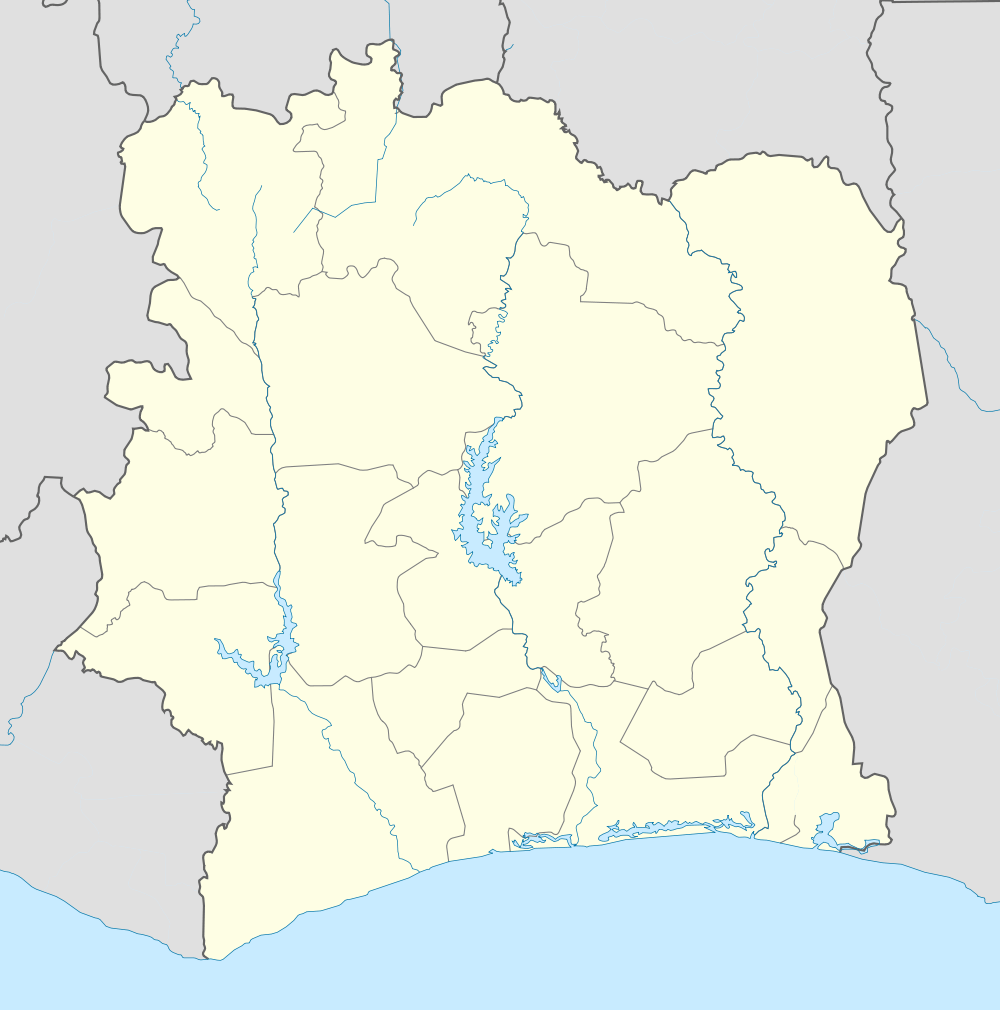Kong, Ivory Coast
| Kong | |
|---|---|
|
Map of Kong, 1892 | |
 Kong Location of Kong within Ivory Coast | |
| Coordinates: 9°9′50″N 4°37′26″W / 9.16389°N 4.62389°W | |
| Country |
|
| Region | Savanes Region |
| Department | Ferkessédougou Department |
| Commune | Kong Commune |
| Government | |
| • Type | Commune - collectivité territoriale |
| Elevation | 328 m (1,075 ft) |
| Population | |
| • Total | 1,000—2,000 |
| Time zone | GMT (UTC+0) |



Kong is a town and commune in the Ferkessédougou Department, in the Savanes Region of northern Ivory Coast. It was the capital of the Kong Empire (1710–1895).
Natural history
Kong is in the sub-Saharan Sahel—tropical Savanna belt biogeography region, of grasslands with trees, such as the Baobab—Adansonia digitata and Shea—Vitellaria paradoxa and other species. Comoé National Park is to the east.
History
Kong emerged as a trading center when Mali Empire merchants began trading in the territory of the surrounding Senufo people. The sous-préfecture of Kong, in the area of Kong to Dabakala, is said to be the “origin” area, where Mandé ethnic group traders known as the Dioula — Juula migrated from the Niger basin to settle in the 12th century.[1]
The Juula traders brought with them their trading skills and connections, and transformed Kong into an African international market for the exchange of northern desert goods, such as salt and cloth, and southern forest exports such as cola nuts, gold, and slaves.
As Kong grew prosperous from trade its early rulers from the Taraweré clan combined Juula and Senufo traditions, and extended their authority over the surrounding region.
- Kong Empire
In 1710, Seku Ouattara (Wattara), a Dioula warrior, invaded the area and conquered the city of Kong with his cavalry. He established himself as ruler and, under his authority, the city rose from a small city-state to the capital of the great Kong Empire. It held sway over much of the region for over 150 years.
- 19th century
In 1881 Samory Touré expanded his Wassoulou Empire in conquering the Kong Empire, and destroyed much of the city of Kong. In 1898 the Kong region and city then came under French colonial control, within the French West Africa colony created in 1893.
Features
Despite the Kong Empire's fall from power, their seventeenth century landmark Kong Friday Mosque survived. In the 20th century Kong was largely rebuilt in a traditional earthen Sahelian architecture style. It features a Qur'anic school and distinctive baked mud mosque buildings.
References
- ↑ About African History: Timeline - Ivory Coast history; accessed 4.01.2011
Bibliography
- Baumann, Gerd (2004) Grammars of Identity/Alterity: A Structural Approach
- Appiah, Kwame (2003) Africana: The Concise Desk Reference
- Forrest, Joshua (2004) Subnationalism in Africa: Ethnicity, Alliances, and Politics
| Wikimedia Commons has media related to Kong. |
